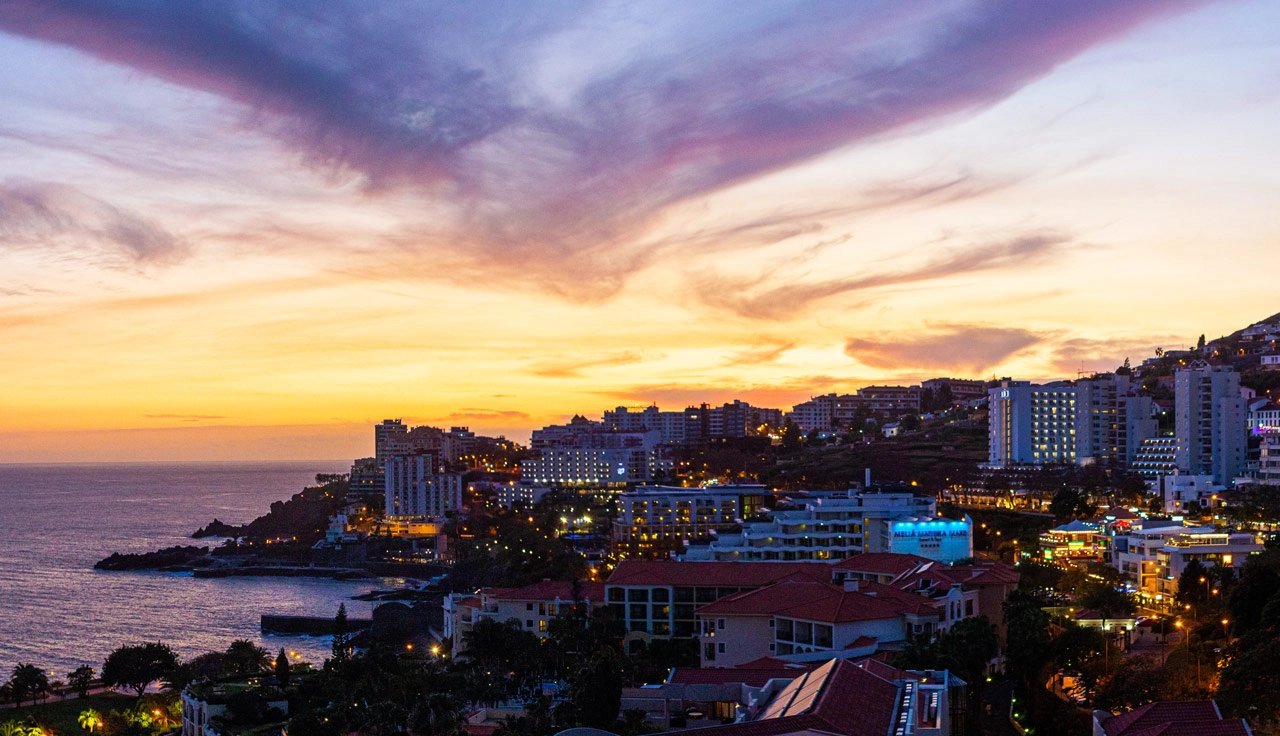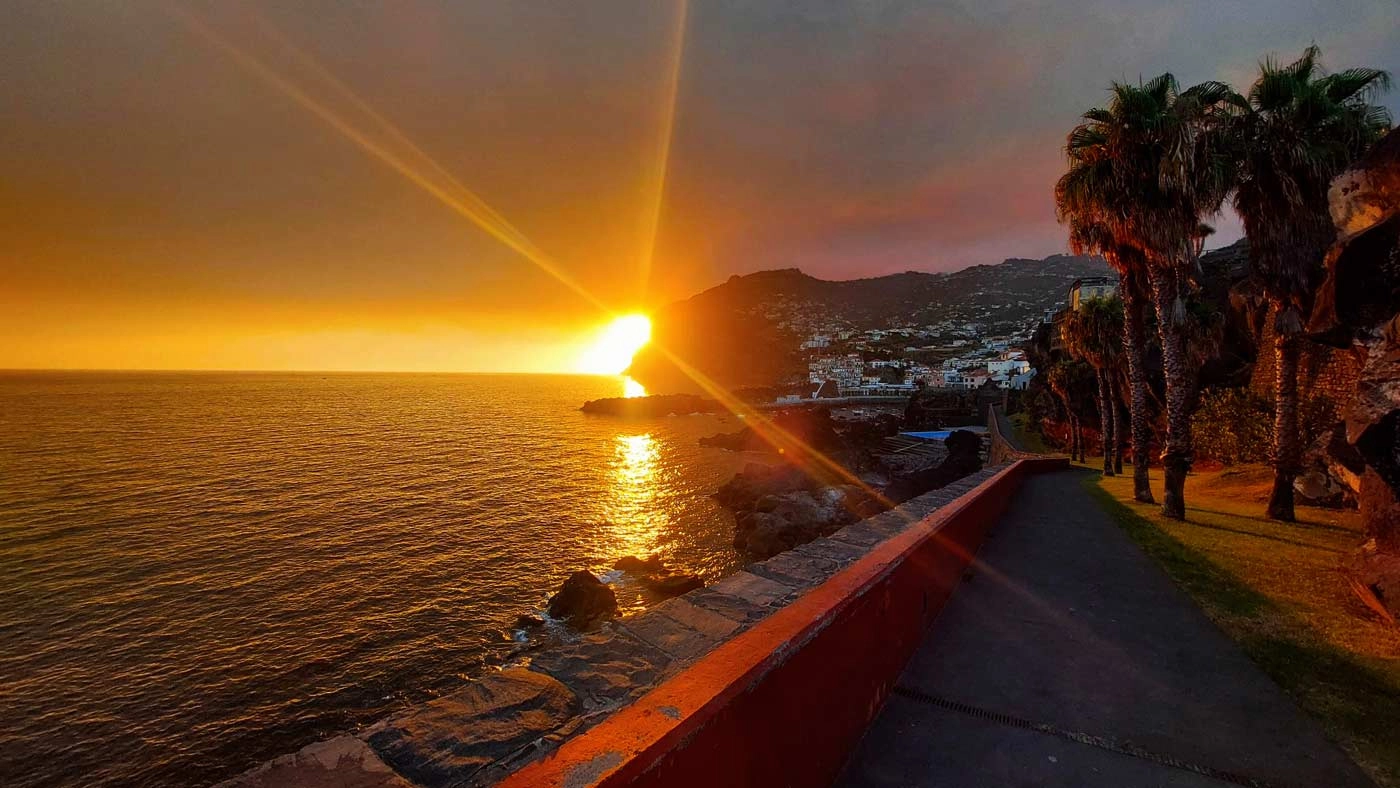Madeira Among Best Performing Regions
After a tough stretch globally, Portugal faced economic uncertainties. But in 2022, things started looking up, with the Gross Domestic Product (GDP) of all Portuguese regions bouncing back and even exceeding pre-pandemic levels.
Madeira, Algarve, and Lisbon particularly stood out, despite relying heavily on tourism, which took a big hit during the pandemic. Portugal's overall economic scene saw a solid recovery, with a 12.2% GDP growth in 2022. Madeira, however, went above and beyond, showing a hefty 19.8% growth rate – beating the national average and exceeding pre-pandemic levels.
Adjusting for inflation, Madeira continued to do well. With a growth rate of 14.2%, the region showed its ability to bounce back and thrive.

Tourism Remains Madeira’s Achilles' Heel
Looking at the connection between pandemic impact and economic growth reveals an interesting pattern. Regions less affected by the pandemic in previous years saw more modest growth in 2022, while those hit hard experienced a stronger rebound.
Tourism is a driving force of Madeira's economic development, contributing to 28,8% of its GDP. While this growth is positive, it also shows the vulnerability of Madeira's economy to fluctuations in tourism demand.
Diversifying the economy and reducing reliance on tourism can help to mitigate risks and ensure long-term economic stability.
Bad news: Higher Disparities in GDP per Capita
While Madeira's economic success is worth celebrating, it's important to note increasing disparities in GDP per capita. Early data for 2022 suggests higher disparities in Madeira compared to the national average.
As the region keeps recovering, addressing these gaps will be key for fair and lasting development. But it will not be an easy task.
How Tourism Leads to a More Unequal Society
Polarized Income Distribution
Tourism tends to create a polarized income distribution, with a small group of individuals making substantial profits from tourism-related businesses, while a larger group of lower-skilled workers receive comparatively lower wages. This inequality can widen over time if not addressed through effective economic policies.
These policies can consist of higher taxation of the tourism industry while making sure these taxes are being directed at markets that enable economic growth in sectors that can bridge the income gap.
Low-skilled Workforce
Tourism frequently depends on a workforce with minimal qualifications, that is easily replaceable. Jobs like waiters or receptionists don't demand extensive training, limiting employees' bargaining power for higher wages. This leads to stagnant career growth and ongoing job insecurity.

Skills Mismatch
Tourism often creates a demand for specialized skills, such as hospitality, customer service, and marketing, while the local workforce may lack these qualifications. This skills mismatch can lead to higher wages for those with the required skills, further widening the income gap.
Land and Property Speculation
The influx of tourists can lead to escalating property prices, forcing locals to relocate and struggle to find affordable housing, exacerbating income disparities.
Tourism Trap: Growth Erodes Democracy
Madeira is dealing with a common but tricky problem – the money from tourism is flowing in, but it is dividing society through disproportionate growth. Comparing the latest numbers on a national level shows that Madeira’s elected officials need to take this matter seriously, and the media needs to address it.
If tourism revenues are not effectively redistributed to address the population as a whole, income inequality - Portugal already ranks among the most unequal European countries - will grow further.
The trust people have in their elected representatives will continue to decline. At a political level, this erodes the foundations of democracy.
Madeira’s Economy in Need of Resilience and Strategic Planning
Madeira's economic story in 2022 speaks volumes about both resilience and equal opportunity in tough times. As a leading region in Portugal's recovery, Madeira's growth signals a hopeful future.
However, the government needs to not only support fair distribution but also implement policies that strategically boost economic support for markets, enabling diverse industries to catch up and flourish.








Comments